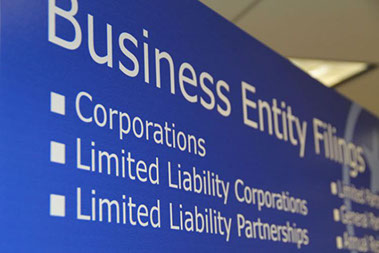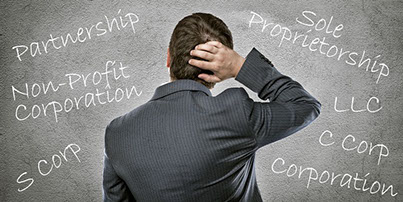
Protector of Assets
and Estates
HAGENDORF
Law
Firm
Trouble viewing? Mobile Site

Protector of Assets
and Estates
HAGENDORF
Law
Firm

They say most businesses won’t survive their first 5 years. However, according to statistics published by the U.S. Small Business Administration, the businesses that incorporate are 40% more likely to be in business past 5 years.
Why is that? Of all the choices you make when starting a business, probably the most important is the type of legal structure you select for your company. Not only will this decision have an impact on how much you pay in taxes, it will affect the amount of paperwork your business is required to do, the personal liability you face, and your ability to raise money.

Selecting a Business Entity

When making a decision about the type of business to form, there are several criteria you need to evaluate. Just a few are:
- Legal liability. To what extent does the owner need to be insulated from legal liability? You need to consider whether your business lends itself to potential liability and, if so, if you can personally afford the risk of that liability. If you can't, then a liability limiting entity is the best way to go. The protection of personal assets is considered the number-one reason clients incorporate. In case of a lawsuit or judgment against your business, no one can seize your personal assets if you properly incorporate.
- Tax implications. Based on the individual situation and goals of the business owner, what are the opportunities to minimize taxation? There are more tax options available to corporations and limited liability companies than to proprietorships or partnerships. Each business entity has tax benefits and disadvantages. For example, a common disadvantage often associated with corporations is double taxation but double taxation can be avoided with S corporation status if the business qualifies.
- Cost of formation and ongoing administration. Tax advantages, however, may not offer enough benefits to offset other costs of conducting business. For example, with a corporation there is a higher cost of record-keeping and paperwork, as well as the costs associated with the statutory fees of incorporation. Taking care of administrative requirements often eats up the owner's time and therefore creates costs for the business. It's the record-keeping requirements and the costs associated with them that keeps the sole proprietorship as a very popular form of business entity. If you own 100 percent of the business, and you're in a business where a good liability and/or umbrella insurance policy is available, a sole proprietorship may be your answer.
- Flexibility. Maximizing flexibility may be your goal if there are unique needs of the business as well as the personal needs of the owner or owners. Individual needs are a critical consideration. No two business situations will be the same, particularly when multiple owners are involved. No two people will have the same goals, concerns or personal financial situations. If organizational and/or management flexibility are important, then you might want to consider a limited liability company, the most flexible of all business entities.
- Future needs. When you're first starting out in business, it's not uncommon to be "caught up in the moment." You're consumed with getting the business off the ground and usually aren't thinking of what the business might look like five or ten-let alone three-years down the road. What will happen to the business after you die? What if, after a few years, you decide to sell your part of a business partnership? Keep in mind that the business structure you start out with may not meet your needs in years to come. Many sole proprietorships evolve into some other form of business-like a partnership or corporation-as the company grows and the needs of the owners change
The bottom line? Don't take the very important decision of selection of a business entity, lightly, and don't make a choice based on what somebody else has done. Carefully consider the unique needs of your business and its owners, and seek expert advice, before settling on a particular business format.
